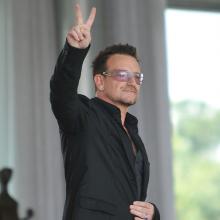aids epidemic
AFTER TWO YEARS of COVID-19, the world yearns to move forward. Meanwhile, we commemorate 40 long years of the HIV/AIDS epidemic in the U.S. The first years were characterized by silence, as government, churches, and other institutions generally ignored people living with HIV and dying from AIDS. However, compassionate individuals broke the silence and offered care and advocacy. In Hidden Mercy: AIDS, Catholics, and the Untold Stories of Compassion in the Face of Fear, Michael J. O’Loughlin gives voice to Catholics who followed the gospel call to serve these marginalized in the U.S. in the 1980s and ’90s.
Hidden Mercy, based on the podcast series Plague: Untold Stories of AIDS and the Catholic Church, focuses on the experiences of a few individuals—including a nun in the Midwest, a gay artist priest, and a lay Catholic nurse. One championed the first public HIV/AIDS education program—notably held in a Catholic church. Others advocated for hospital beds for HIV patients, established hospice homes, or ministered to the homeless and persons of color, who were—and still are—disproportionately affected by HIV/AIDS. They facilitated pharmaceutical clinical trials that included persons of color. Others led interfaith memorial services. These Catholics ministered to the sick while the institutional Catholic Church was first silent, later insensitive, and at times heartless in written and verbal statements targeting gay people with HIV/AIDS.
The well-known peace activist spent much of his life bringing comfort to the dying.

Photo via The Inheritance on Facebook
In The Inheritance, currently on Broadway through mid-March, a century-old English novel (E.M. Forster’s Howards End) gently soundtracks, or perhaps orchestrates, the lives of gay men in their 30s during the period when President Obama was moving out of office, President Trump was moving in, and many of us wondered just where on earth we were.
At prayer healing services in some Pentecostal churches, pastors invite people infected with HIV to come forward for a public healing, after which they burn the person’s anti-retroviral medications and declare the person cured.
The “cure” is not free, and some people say they shell out their life savings to receive a miracle blessing and quit taking the drugs.
“I believe people can be healed of all kinds of sickness, including HIV, through prayers,” said Pastor Joseph Maina of Agmo Prayer Mountain, a Pentecostal church on the outskirts of Nairobi. “We usually guide them. We don’t ask for money, but we ask them to leave some seed money that they please.”
But the controversial ceremonies are raising red flags as believers’ conditions worsen, and a debate has opened over whether science or religion should take the lead in the fight against the AIDS epidemic.
Today marks the anniversary of World AIDS Day. The USAID estimates that since the epidemic began, over 60 million people have been infected with the disease, and over 25 million lives taken.
One of the most prominant figures fronting the fight against AIDS is U2 frontman, Bono. In 2002, Bono became vocal about the epidemic, embarking on a tour across the American Midwest to recruit churches to join the fight against AIDS in Africa. In Christianity Today’s 2003 feature “Bono’s American Prayer,” (written by Sojo’s own Cathleen Falsani) he articulates the crucial role the church must play in combating the epidemic.
"If the church doesn't respond to this, the church will be made irrelevant. It will look like the way you heard stories about people watching Jews being put on the trains. We will be that generation that watched our African brothers and sisters being put on trains."



